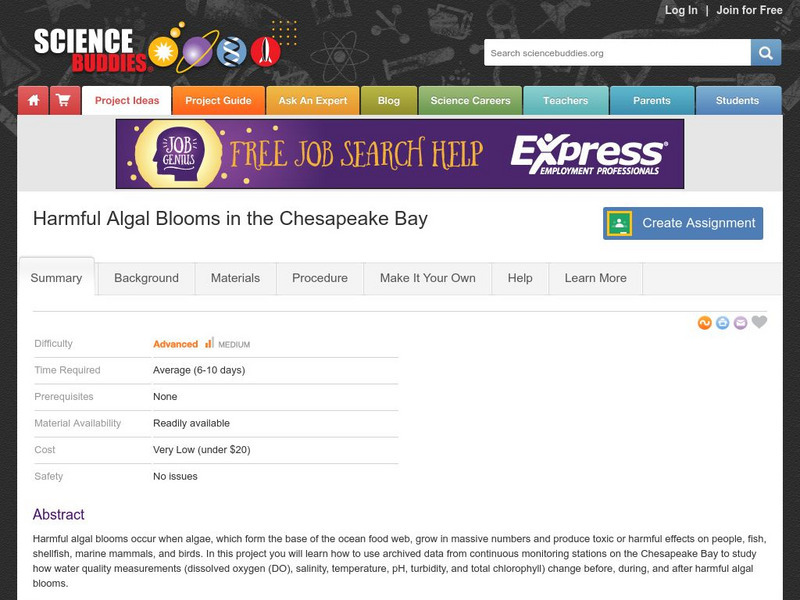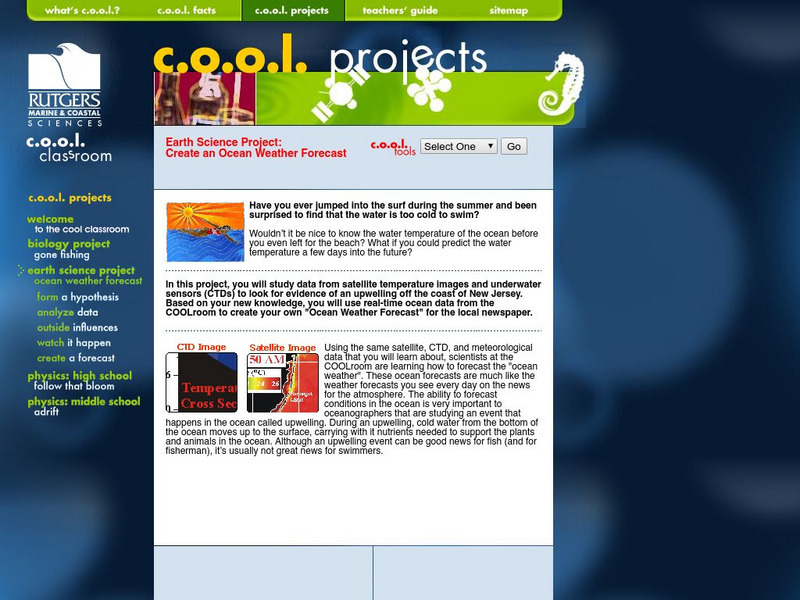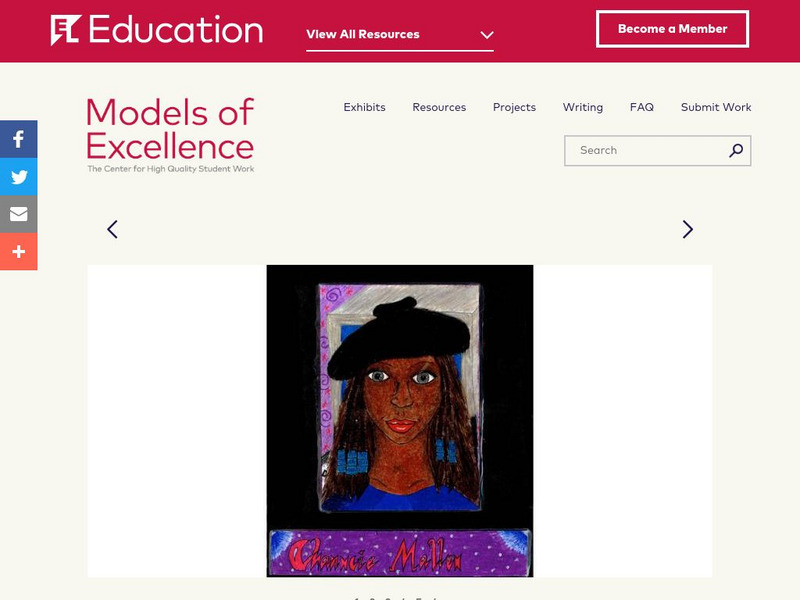Science Buddies
Science Buddies: Learning Your A, G, C's (And T, Too)
This is a project about the "molecular alphabet" of DNA. With just four "letters," it manages to keep track of the plan for an entire person, and keep a complete copy in nearly every cell. This project will help you start learning this...
Science Buddies
Science Buddies: Harmful Algal Blooms in the Chesapeake Bay
Harmful algal blooms occur when algae, which form the base of the ocean food web, grow in massive numbers and produce toxic or harmful effects on people, fish, shellfish, marine mammals, and birds. In this project you will learn how to...
Science Buddies
Science Buddies: Now You See It, Now You Don't! Test Your Peripheral Vision
The survival of our ancient ancestors depended on their ability to use peripheral vision to find prey and to avoid predators. Almost everything we do-from riding a bike, to dribbling a basketball, to reading a book-depends on peripheral...
Alabama Learning Exchange
Alex: P Hun With Acids and Bases!!! (A P H Lesson)
In this lesson plan, the students will learn the characteristics of acids and bases including the associated pH values. The students will conduct a hands-on activity that shows color indicators for different pH values. This lesson plan...
Other
Rutgers: c.o.o.l. Class: Earth Science Project: Create an Ocean Weather Forecast
Want to learn how to forecast ocean weather? This c.o.o.l. project lists each of the steps in the scientific process, and has you work through each in this earth science based project.
Alabama Learning Exchange
Alex: We Can Dig It!
In this instructional activity, third grade students will explore "fossils" by using chocolate chip cookies in an interactive fossil dig! Through creative problem-based learning that incorporates technology, students will work in...
Alabama Learning Exchange
Alex: Telling Time to the Hour
This lesson helps children make a connection between the digital and analog clock. In general, the number system is based on units of ten which can sometimes make it difficult for children to realize that time is based on cycles of...
EL Education
El Education: Chauncie Mallen
A 5th/6th grade student in Shutesbury, Massachusetts, created this character file (CF) as part of a Learning expedition on local scientists. As part of the expedition, students surveyed all of the fields that are considered the hard...
Cornell Lab of Ornithology
Habitat Network: Find Out How Your Lawn Measures Up
Based on a Calfornia ordinance that limits the size of lawns, Habitat Network offers some alternatives for a species-rich backyard.
Alabama Learning Exchange
Alex: Pass It Down
This lesson, Pass It Down, integrates science and math into two consecutive hands-on genetics activities that should be embedded within an existing genetics unit suitable for biology students. The results of each activity will be...
Alabama Learning Exchange
Alex: Lining Up the Decimals
This lesson provides a chance for the students to order decimals from least to greatest and greatest to least. The numbers are based on a student's ability. This lesson plan was created as a result of the Girls Engaged in Math and...
Alabama Learning Exchange
Alex: Can You Curl Your Tongue?
This lesson is adapted from a Connected Mathematics Unit, How Likely is It? This investigation introduces biology as a source of applications for probability. In this lesson, Curling your Tongue, students determine how many students in...
EL Education
El Education: Floura Casuella
A 5th/6th grade student in Shutesbury, Massachusetts created this character file as part of a Learning expedition on local scientists. Students were engaged in a survey-style study of all of the fields that are considered the hard...












